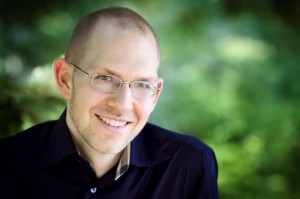Dr. Joseph Barber
Many of you may be considering whether or not to pursue a postdoc after you have received your PhD. The postdoc can serve several purposes:
- To give you additional training in your research field that expands the sometimes narrow focus you may have had during your PhD
- To allow you to build and practice more technical skills that help you to be a more rounded researcher
- To give you some time as you apply for academic positions in what remains a very challenging job market
- To give you some time to figure out what it is you actually want to do next if you realize that pursuing an academic job may not be for you
- To gain industry-relevant experience if you seek out some of the postdocs funded by certain research organizations and employers
There are many reasons for taking on a postdoc position, and also many considerations in terms of what you want to do, with whom, where, and how long you should stay in a certain postdoc position. You will need to think carefully about these considerations, but as you do, here are some general thoughts for you to ponder:
Diversity of research experiences:
Depending on the type of career you are seeking, using a postdoc to gain additional experience can help to fill out your skills and research experiences section on your CV/resume. So, choosing a postdoc that is slightly outside of your current sphere of research, or in a different lab, can offer you some new and rewarding challenges. You can also bring your different perspectives into this new research and perhaps contribute effectively to more interdisciplinary research (even within a subject) because of your new ideas and different approaches. Of course, the downside to switching labs or research topics is that you may have some catching up to do before you may be in a position to publish papers – something that is considered important in the selection of candidates for some (but certainly not all) careers.
Diversity of non-research experiences:
If you are thinking about non-academic careers, then it is important that you can focus on a wide diversity of experiences and accomplishments in your resume that are not all focused on research. This will allow you to think about many of the career opportunities that are available to someone with a doctorate. Some of these experiences might include having the opportunity to mentor other students, to lead a committee within a student/postdoc organization, to gain additional editing experience working with other researchers, to serve as an intern/fellow in a tech transfer office, or to join graduate student and postdoc groups that focus on careers such as biotech and consulting. Of course, all of the experiences I have listed here (and others that I have not) are available to postdocs at Penn, and it would be important to think about whether a different institution could offer similar experiences. Indeed, even having access to a Career Services office could be an important factor to consider – not all universities offer their postdocs this resource. If you are transitioning out of academia, then the more you have done, experienced, investigated, achieved, outside of your direct research, the easier it will be to convince an employer that you do have a good track record of using your skills to get things done. It is not easy – a postdoc can take up a lot of your time, but expanding your horizons (and your network) by getting involved in other activities will always be beneficial, even if you choose to continue on in academia.
Where should you look for postdocs, and how long should you stay?
There are no easy answers to these questions, but there is some interesting research out there related to these issues. In the paper: “Postdoctoral training, departmental prestige and scientists’ research productivity”, Su (2011) explores the influence that postdocs can have on ultimate career success (as it relates to academic positions in this case). In brief, some of the findings suggest that researchers are the most productive in the first three years of their postdoc post-graduation, and more so than researchers who continue on within academia but who did not do a postdoc. The prestige of the institution also seems to have a positive effect. Read this paper – you can find it on Web of Science – and I have provided the full reference below. While you are at it, do a literature search for similar papers on the career paths for researchers, whether you are a scientist, social scientist, or a humanities researcher. There are always interesting papers out there that might help you make an informed career decision. For example, here is another one: “Onto, Up, Off the Academic Faculty Ladder: The Gendered Effects of Family on Career Transitions for a Cohort of Social Science Ph.D.s” (full reference below).
These are just some general thoughts about postdocs. Chat with your colleagues, your advisors, your thesis committee, and with someone at Career Services – we can all offer different perspectives that might help you in your decision-making if you are thinking about postdocs.
References:
Morrison E, Rudd E, & Nerad M. (2011). Onto, Up, Off the Academic Faculty Ladder: The Gendered Effects of Family on Career Transitions for a Cohort of Social Science Ph.D.s. The Review of Higher Education 34(4): 525-553.
Su, XH. (2011). Postdoctoral training, departmental prestige and scientists’ research productivity. Journal of Technology Transfer 36(3): 275-291.



